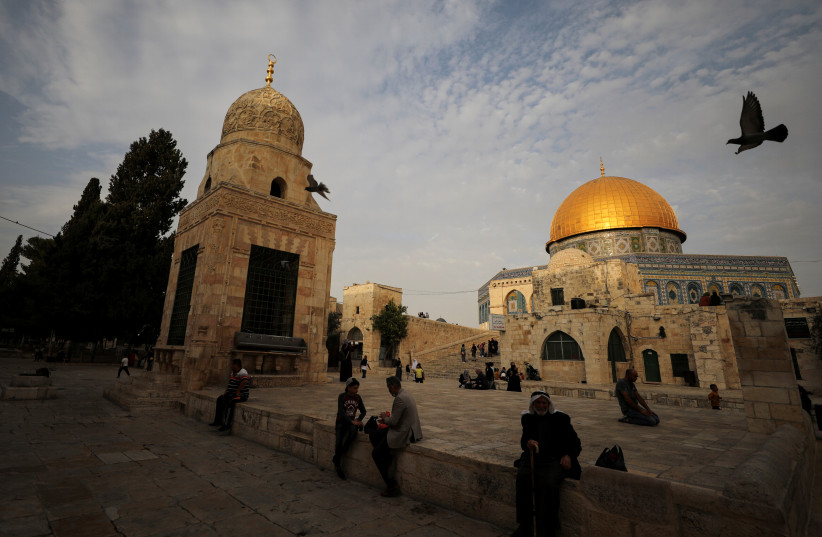Jordan’s Foreign Ministry in Amman summoned Israel’s Ambassador Eitan Surkis after an incident at Jerusalem’s Temple Mount, in which the Hashemite Kingdom’s envoy was asked to wait briefly before being allowed to enter al-Aqsa Mosque compound.
It was the second time this month that Surkis was summoned over Jordan’s concerns regarding the Temple Mount.
Jordanian Foreign Ministry spokesman Sinan Majali handed Surkis a letter that condemned Israeli actions at the site Muslims call al-Haram al-Sharif.
Jordan, which ruled east Jerusalem and its walled Old City from 1948-1967, retains a special custodial relationship to the holy site and views with concern all incidents that occur there, particularly those that it believes violate the status quo, such as this one.
Amman holds that the site is under the sole administration of the Islamic Wakf, which is affiliated with its Religious Affairs Ministry, and it reminded Israel of this in its letter.

The Israel Police, which has security control over the Temple Mount, said that its officers had not been notified in advance of the visit and asked Jordan’s Ambassador Ghassan Majali to wait while they checked the situation with their superiors.
Majali left the site instead of waiting, but returned to visit the mosque after the meeting in Amman between the Foreign Ministry and Surkis.
Other diplomatic visits to Jerusalem's Temple Mount and resulting controversies
Last week, British Minister of State for the Middle East Lord Tariq Ahmad was briefly delayed by police before he was granted permission to enter the compound so that he could visit al-Aqsa Mosque.
Reports of the delays come after National Security Minister Itamar Ben-Gvir sparked international uproar over his own visit to the compound on January 3, with Jordan summoning Israel’s ambassador to protest the matter.
The Temple Mount/Haram al-Sharif is the holiest site in Judaism and the third holiest in Islam. An agreement exists that only Muslims can pray at the site, but anyone can visit at prescribed times.
Israel has prided itself on allowing freedom of worship in Jerusalem, with many members of the government arguing that such freedom of worship should extend to Jews as well.
The Foreign Ministry stressed on Tuesday that “there is no change in Israel’s policy regarding the Temple Mount. Israel is committed to keeping the status quo on the Temple Mount and the freedom of worship in Jerusalem. The Israeli Police are responsible for law and order on the Temple Mount.”
In April 2021, during Prime Minister Benjamin Netanyahu’s prior tenure in office, Hashemite Crown Prince Hussein bin Abdullah was stopped at the Allenby Crossing on his way to pray at the Temple Mount. A misunderstanding arose regarding the number of Jordanian security guards authorized to accompany him. The prince returned home without entering Israel, sparking a dispute between Amman and Jerusalem.
